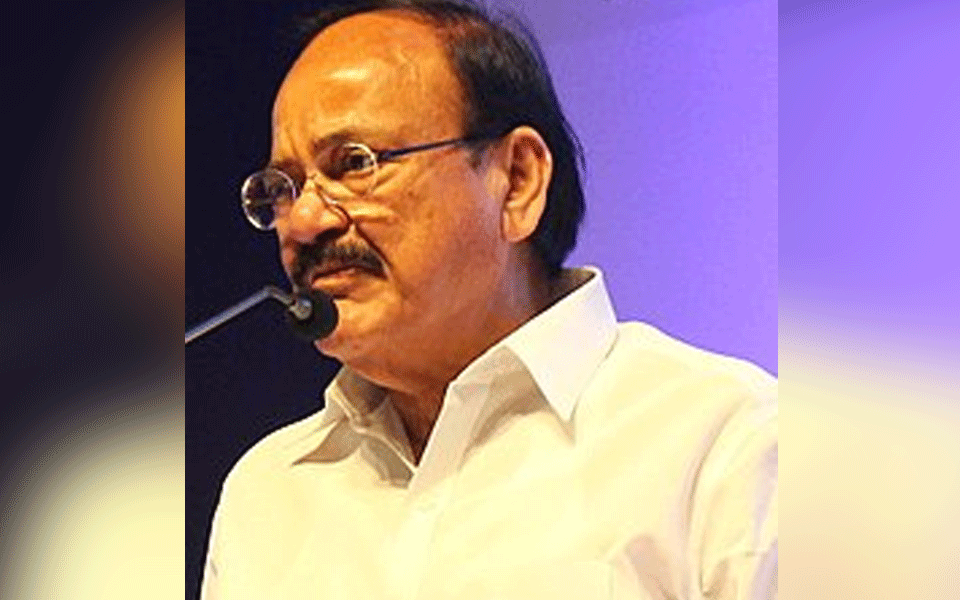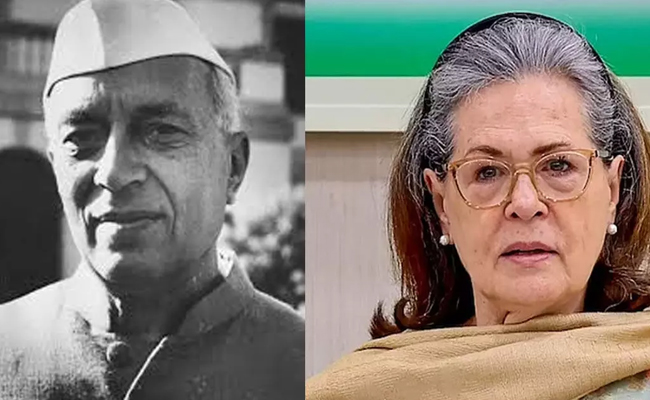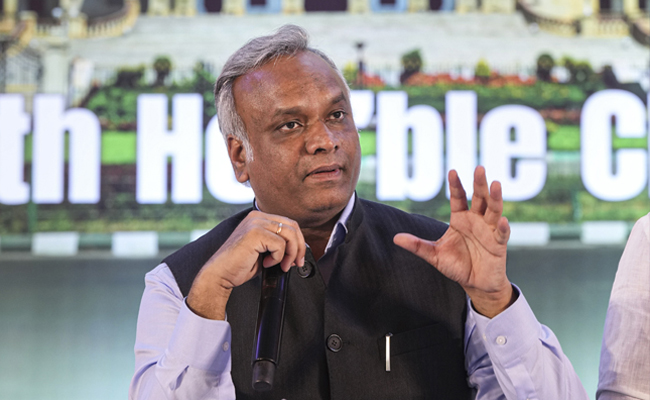Hyderabad, Aug 5 : Vice President M. Venkaiah Naidu on Sunday asked scientific institutions to nurture talent and foster path-breaking innovations to transform the socio-economic landscape of the country.
Scientific organisations have to set ambitious goals and strategically position themselves to become leading institutions in the world, he said at the Platinum Jubilee Celebrations of CSIR-IICT (Indian Institute of Chemical Technology).
"Though we are progressing on various fronts, incremental progress is not enough. The government must facilitate this quest for excellence by providing funds, freedom and flexibility. The private sector also needs to come forward to liberally support research," a release quoted him as saying.
"Reducing procedural bottlenecks, removing hierarchical barriers and resetting priorities is also crucial and the leadership in scientific institutions should encourage bright, young scientists to come up with new and unconventional ideas and projects. Opportunities must be provided for undertaking path-breaking research that answers one or more of current societal challenges."
Naidu said there was no dearth of talent in the country and stressed the need to create the right ecosystem for innovation to thrive.
"India, with 65 per cent of the population below the age of 35, must equip the young people with scientific and technological knowledge and skills," the Vice President added.
Let the Truth be known. If you read VB and like VB, please be a VB Supporter and Help us deliver the Truth to one and all.
New Delhi (PTI) The government on Wednesday slammed Congress leader Sonia Gandhi for keeping "51 cartons of Jawaharlal Nehru papers" and sought their return to Prime Ministers' Museum and Library (PMML) so that scholars and Parliament can access the crucial historical records of 'Nehruvian' times, asserting that these documents "belong in public archives, not behind closed doors".
Union Culture Minister Gajendra Singh Shekhawat, in a post on X, also sought to clarify the Centre's written response in Parliament on December 15, and said, since the location of these papers is known, they are "not missing".
The clarification comes a day after Congress took a swipe at the Centre over its response in Lok Sabha to a query on documents related to the first prime minister.
"No documents related to India's first Prime Minister, Pandit Jawaharlal Nehru, have been found missing from the museum during the annual inspection of the PMML in the year 2025," Shekhawat had told Parliament in a written response to the query by BJP MP Sambit Patra.
After Nehru's death, the Teen Murti Bhawan in central Delhi became the Nehru Memorial Museum and Library (NMML), housing a rich collection of books and rare records. The NMML was renamed Prime Ministers' Museum and Library in 2023.
The Nehru papers have been a contentious issue between the ruling BJP and opposition Congress, and a section within the PMML has been pushing for "reclaiming" these papers, which were taken back by Sonia Gandhi several years ago.
Shekhawat, in his post on X, said Nehru papers are "not 'missing' from PMML". He added that the word 'missing' entails that the "whereabouts are unknown".
"In reality, 51 cartons of Jawaharlal Nehru papers were formally taken back by the family in 2008 from the Prime Ministers' Museum and Library (then NMML). Their location is known. Hence, they are 'not missing'," the Union minister said.
These papers were "handed over officially in 2008, on request", with records and catalogues maintained by PMML, he said.
Shekhawat said that scholars, researchers, students and citizens "have a right to access original documentary sources to arrive at a truthful and balanced understanding" of Jawaharlal Nehru's life and times.
"On one hand, we are being asked not to debate the blunders of that era. On the other, primary source material that could enable informed debate is kept out of public access.
"This contradiction cannot be ignored. This is no ordinary matter. History cannot be curated selectively. Transparency is the foundation of democracy and archival openness is its moral obligation which Mrs Gandhi and the 'family' need to uphold," he argued.
Shekhawat, in his long post, further wrote, "What does require an answer is this: Why have these papers not been returned despite multiple reminders from PMML including the recent reminders in January and July 2025? The nation deserves clarity."
"I respectfully ask Sonia Gandhi ji to explain to the country: What is being withheld? What is being hidden? The excuses being given by Smt Sonia Gandhi for not returning these papers are not tenable. The point is that why are important historical documents still outside the public archive?
"These are not private family papers. They relate to the first Prime Minister of India and form part of our national historical record. Such papers belong in public archives, not behind closed doors," Shekhawat argued in his post.
He also responded on X on Wednesday to a post a day ago by Congress general secretary in-charge communications Jairam Ramesh who wrote, "The truth was finally revealed in the Lok Sabha yesterday. Will there be an apology forthcoming?"
Shekhawat said, "The truth placed before the Lok Sabha is clear and on record."
"The Nehru Papers were taken out in 2008, during the UPA period, when public institutions were often treated as family preserves. Smt. Sonia Gandhi herself has acknowledged in writing that these papers are with her and promised to 'co-operate' on the matter," he said.
"In fact it would be more appropriate for you to urge Sonia Gandhi to honour her commitment and return these papers to PMML so that scholars, citizens, and the Parliament can access these crucial historical records and the truth of 'Nehruvian' times can be examined objectively," he said.
PMML Society, the key decision-making body of the PMML, is helmed by Prime Minister Narendra Modi as its president, and Defence Minister Rajnath Singh as the vice-president.
Earlier in the day, the Ministry of Culture, in a series of posts, said these documents, relating to the first prime minister of India, "form part of the nation's documentary heritage and not a private property".
"Their custody with PMML and access to citizens and scholars for research is vital," it said.
In the first post, it wrote, "On JN papers: Vide letter dated 29.04.2008 Shri M V Rajan, representative of Smt. Sonia Gandhi, requested that Smt. Gandhi wishes to take back all of the private family letters and notes of former PM Jawahar Lal Nehru.
"Accordingly, 51 cartons of Nehru Papers were sent to Smt. Sonia Gandhi in 2008."
The PMML has been in "continuous correspondence" with the office of Sonia Gandhi since then for return of these papers including the letters from PMML to her, dated 28-01-2025 and 03-07-2025," it said.
"Therefore, Nehru Papers are not 'missing' from PMML as their whereabouts are known," the ministry said.





